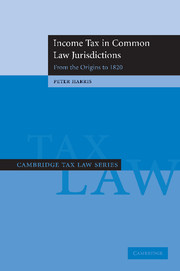Book contents
- Frontmatter
- Contents
- List of tables
- List of maps
- List of statutes
- Preface
- Introduction
- 1 To 1641: Searching for seeds in feudal England
- 2 1642 to 1688: Religion, revolt and restoration
- 3 1688 to 1763: Regional relations, colonial competition and impending independence
- 4 1763 to 1792: Empire divided
- 5 1793 to 1820: the Napoleonic battle, the mighty engine and the immediate aftermath
- Conclusion
- Appendix
- References
- Index
Conclusion
Published online by Cambridge University Press: 10 December 2009
- Frontmatter
- Contents
- List of tables
- List of maps
- List of statutes
- Preface
- Introduction
- 1 To 1641: Searching for seeds in feudal England
- 2 1642 to 1688: Religion, revolt and restoration
- 3 1688 to 1763: Regional relations, colonial competition and impending independence
- 4 1763 to 1792: Empire divided
- 5 1793 to 1820: the Napoleonic battle, the mighty engine and the immediate aftermath
- Conclusion
- Appendix
- References
- Index
Summary
In 1188, Henry II sought ‘a tenth of rents and movable goods’ under the Saladin Tithe. More than 600 years later William Pitt put aside the Triple Assessment in order to ‘realise a full tenth’ of property and income. A mere coincidence, or does this reveal something deeper about a society and the importance of history in justifying direct taxes? Two hundred years after Pitt's effort we may find it difficult to believe that taxes imposed decades ago have relevance to the way in which we currently tax, let alone taxes of hundreds of years ago. What is the reason for this shortening of the collective tax memory? Is it a reflection of increases in the complexity of society or the rise in dominance of economists in tax policy?
Perhaps historically lawyers held more influence in tax policy matters and, as a result of their adherence to precedent, lawyers have long memories. This was clear when Charles I resorted to the ship writs in the 1630s and lawyers played no small part in the major social reforms during Henry VIII's reign. Pitt and his administration were little different. There are extracts from the Parliamentary Rolls reproduced in Pitt's papers that go back beyond the Tudor times and include, for instance, extracts of the fifteenth and tenth. The collective tax memory of Pitt's time knew well of the more comprehensive direct taxation in the times of William III and Mary II.
- Type
- Chapter
- Information
- Income Tax in Common Law Jurisdictions , pp. 474 - 490Publisher: Cambridge University PressPrint publication year: 2006



